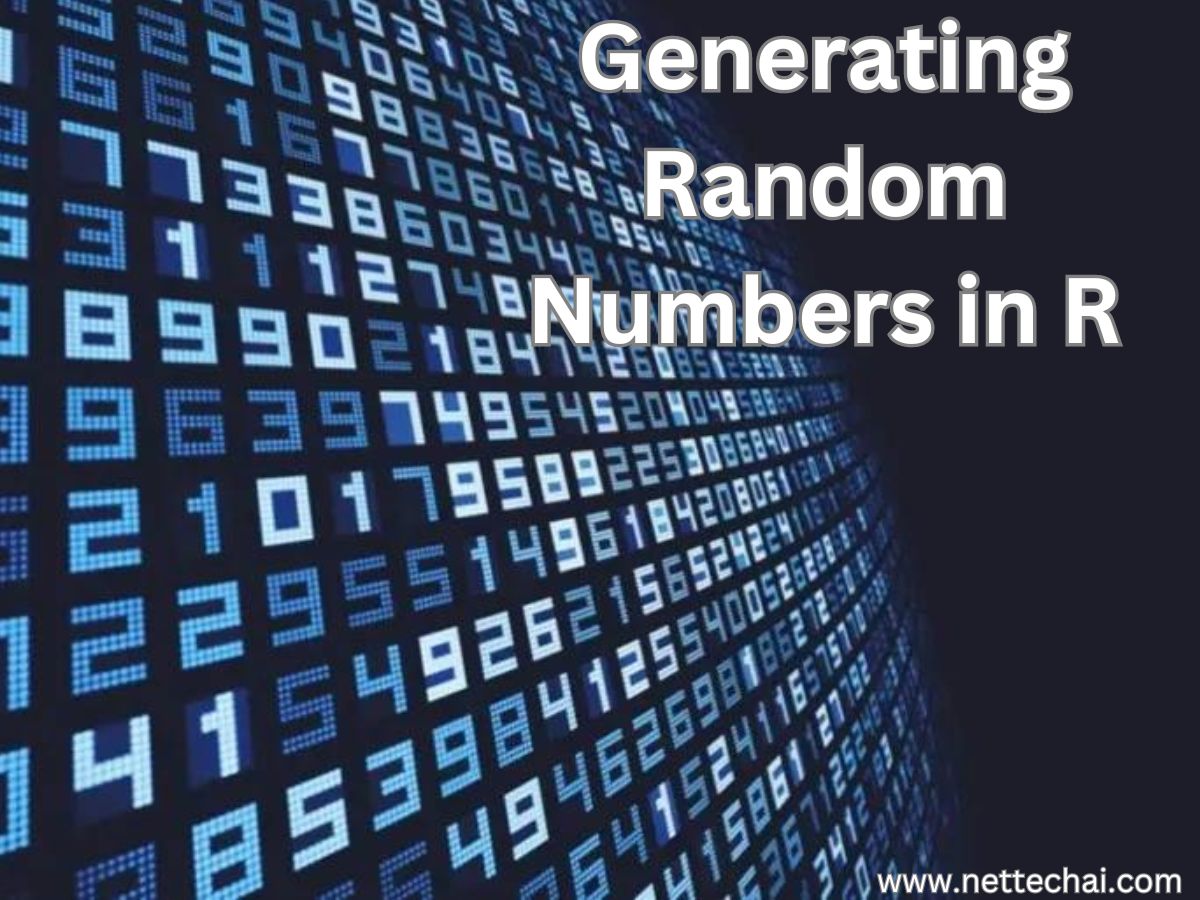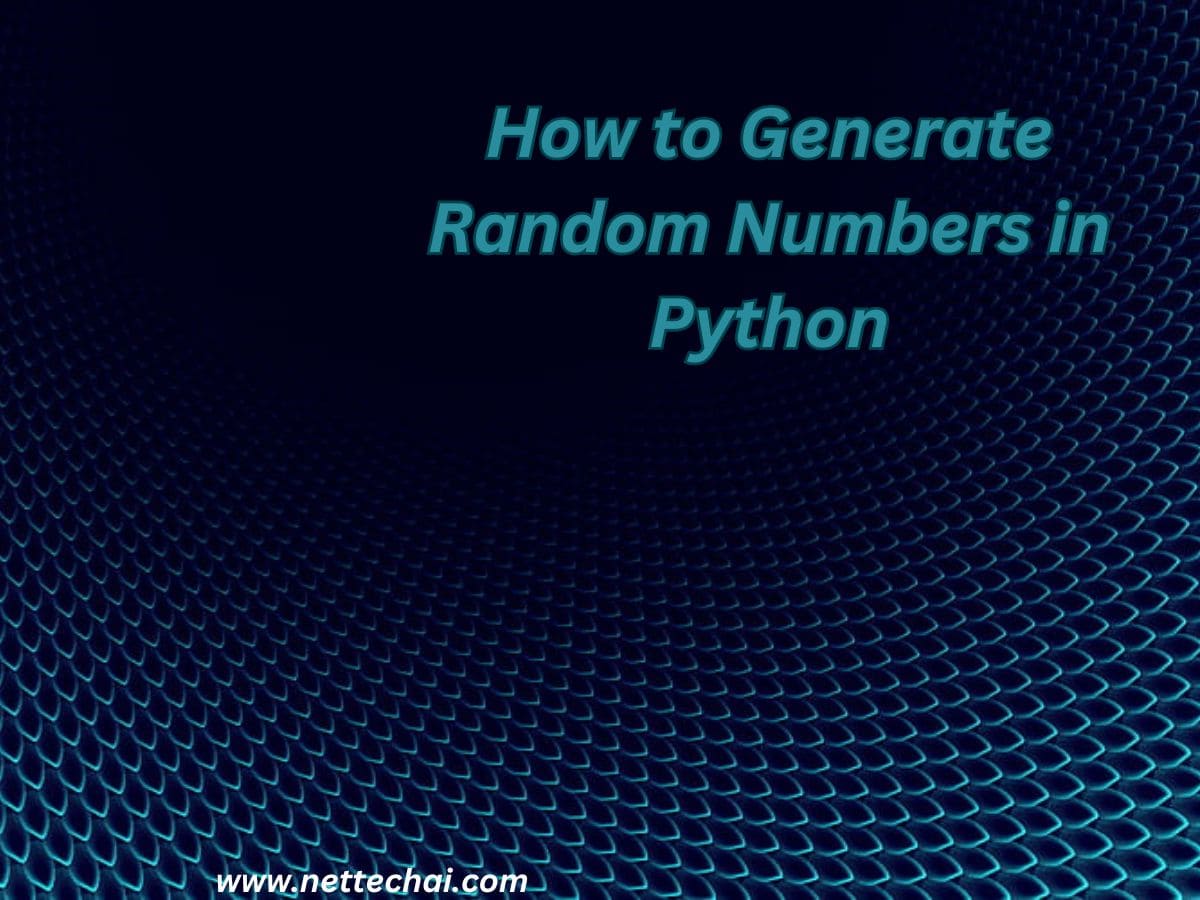How to Generate Random Numbers in R Language

Introduction
Random numbers are an essential component of statistical simulations, scientific experiments, and various data analysis tasks in the world of data science and statistics. In R, a popular programming language for data analysis, generating Random Numbers is R a straightforward process. In this article, we will explore the concept of random number generation in R, including the different types of random number generators available, how to generate correlated multivariate Gaussian random numbers, and how to generate random numbers from a uniform distribution.
Random Number Generators
Random number generation in R primarily relies on random number generators (RNGs), which are algorithms used to generate pseudo-random numbers. These numbers are not truly random, as they are determined by an initial seed value. However, they exhibit statistical properties that make them suitable for various applications.
In R, there are several RNGs available, with the most commonly used ones being the Mersenne Twister algorithm, L’Ecuyer-CMRG, and the Wichmann-Hill algorithm. The default RNG in R is the Mersenne Twister, known for its long period and good statistical properties.
To set the seed for an RNG in R, you can use the set.seed() function. This ensures that you can reproduce your results by using the same seed value.
set.seed(123) # Set a seed for reproducibilityCorrelated Multivariate Gaussian Random Numbers
Generating correlated multivariate Gaussian random numbers is a common requirement in statistical analysis and simulation. In R, you can use the mvrnorm function from the MASS package to create correlated multivariate Gaussian random numbers. First, you’ll need to install and load the package if you haven’t already.
# Install and load the MASS package
if (!requireNamespace("MASS", quietly = TRUE)) {
install.packages("MASS", dependencies = TRUE)
}
# Load the MASS package
library(MASS)Now, you can generate correlated multivariate Gaussian random numbers. You’ll need to specify the mean vector, the covariance matrix, and the number of samples you want.
# Define mean vector and covariance matrix
mu <- c(0, 1)
Sigma <- matrix(c(1, 0.7, 0.7, 1), nrow = 2)
# Generate correlated multivariate Gaussian random numbers
library(MASS) # Ensure you have the MASS library installed
set.seed(123) # For reproducibility
samples <- mvrnorm(n = 100, mu, Sigma)This code will generate 100 samples from a bivariate Gaussian distribution with the specified mean vector and covariance matrix.
Generating Random Numbers From Uniform Distribution
Generating random numbers from a uniform distribution is useful in various statistical simulations and random sampling. In R, you can use the runif() function to create random numbers from a uniform distribution. This function allows you to specify the number of random values and the range within which the values should fall.
# Set the number of random values to generate
num_values <- 10
# Define the range for the uniform distribution
min_range <- 0
max_range <- 1
# Generate random values between 0 and 1
uniform_values <- runif(n = num_values, min = min_range, max = max_range)In this example, runif() generates 10 random values between 0 and 1.
Further Readings
If you want to dive deeper into the world of random number generation in R, there are plenty of resources available to help you learn more. Here are a few recommended readings and websites:
- “Random Number Generation and Monte Carlo Methods” by James E. Gentle: This book provides a comprehensive overview of random number generation and its applications, including those in R.
- R Documentation: R’s official documentation is a valuable resource, with extensive information on random number generation and various functions for working with random numbers.
Website
The R Project (https://www.r-project.org/): The official website of the R Project for Statistical Computing provides access to R software, documentation, and a vast collection of packages and resources for data analysis and statistics.
Summary
Generating random numbers in R is a fundamental skill for data analysts and statisticians. R provides a variety of random number generators, including the widely used Mersenne Twister algorithm, which ensures reproducibility by setting a seed. For generating correlated multivariate Gaussian random numbers, you can use the mvrnorm function from the MASS package. To generate random numbers from a uniform distribution, the runif() function is your go-to choice. By understanding these concepts and exploring the recommended resources, you’ll be well-equipped to work with random numbers in R and perform various statistical simulations and analyses.



